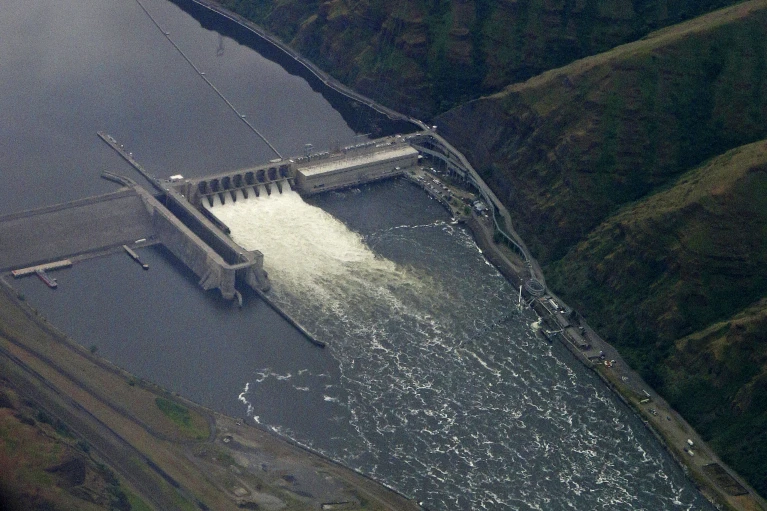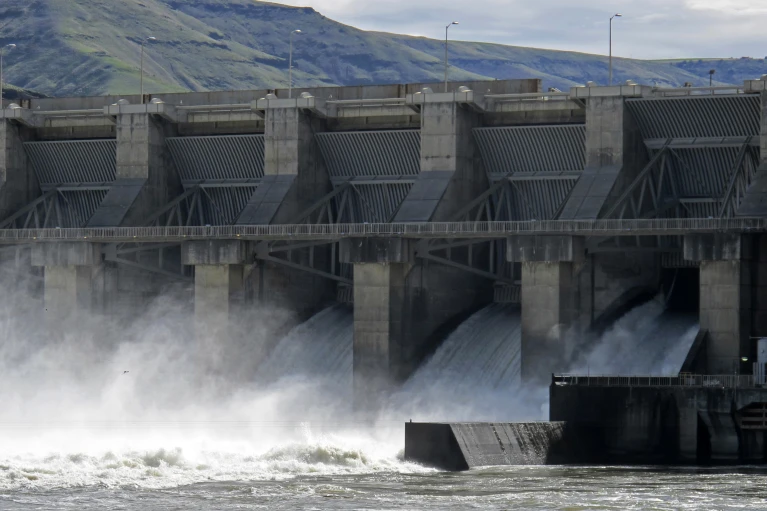On Tuesday, the U.S. government acknowledged its significant role in constructing and operating dams in the Pacific Northwest over the past century, which profoundly harmed Native American tribes. These dams flooded tribal villages, decimated salmon populations crucial to their cultural and spiritual identity, yet brought electricity, irrigation, and employment to nearby communities.
According to a new report, the Biden administration recognized ongoing cultural, spiritual, and economic hardships endured by tribes due to the dams. The report criticized the government for prioritizing industrial development over the well-being of tribal communities, converting tribal wealth into benefits primarily for non-Native populations.
The report highlighted that little consideration was given to the devastating impacts on tribal cultures, sacred sites, economies, and homes when the dams were constructed.

The Lower Granite Dam on the Snake River is seen from the air near Colfax (Via NIck Witte/Shutterstock)
Despite extensive efforts and funding aimed at mitigating these impacts, salmon stocks remain threatened or endangered, and the dams continue to cause multiple adverse effects.
The Interior Department’s report coincides with a $1 billion initiative announced earlier this year to restore salmon runs in the region and enhance collaboration with tribes on conservation efforts. This initiative includes efforts to expand renewable energy production to compensate for potential loss of hydropower generation if four dams on the lower Snake River are breached.
Many tribes, conservationists, and federal scientists advocate for dam removal as the best strategy to restore salmon populations, providing access to vital spawning grounds and habitat in Idaho.

























